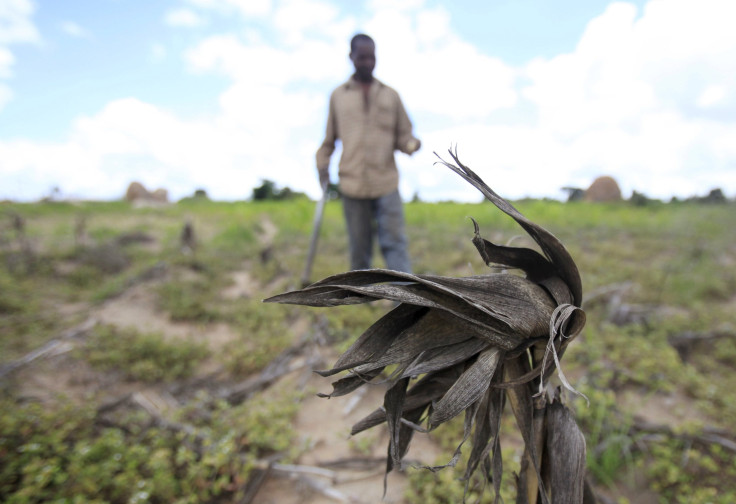Zimbabwe Seeks $1.6B In Aid To Fight Drought, Avoid Starvation

Barely a week after Zimbabwe’s President Robert Mugabe declared a “state of disaster” in rural areas of the country hit by severe drought, Vice President Emmerson Mnangagwa on Tuesday appealed to local businesses and charities for nearly $1.6 billion in aid.
“The government of Zimbabwe requires a total of $1.57 billion with effect from February to December 2016,” Mnangagwa reportedly said. “The amount of rainfall received to date is inadequate to meet basic household consumption needs as well as support for livelihoods, agriculture and wildlife.”
Approximately 1.5 million tons of staple maize — most of which would be imported — would be required to feed people from February to December, Mnangagwa said.
Once known as the “breadbasket of Africa,” the now cash-strapped and impoverished nation of Zimbabwe is struggling to feed its own people due to a severe drought, which has been exacerbated by the El Niño weather phenomenon that has also affected South Africa, Malawi and Zambia. Last week, the Zimbabwean government announced that nearly 2.44 million people in the country — more than one quarter of its population — were “food insecure.”
“[With] the continued threat of the El Niňo-induced drought, his excellency the president has declared a state of disaster in regard to severely affected areas,” Zimbabwe’s public works minister Saviour Kasukuwere said.
However, even as Mugabe blames low farm yields on erratic rains, as well as on sanctions imposed by western countries over his government’s human rights record, critics say that a land reform program enacted by the president in 2000, which saw the seizure of white-owned farms redistributed to landless black Zimbabweans who lacked equipment and infrastructure, was, at least in part, responsible for the sharp falls in agricultural production.
“The April 2015 harvest in Zimbabwe was 50 percent lower than the previous year,” David Orr, a spokesman for the United Nations’ World Food Programme, told the Guardian. “With the drought continuing, it looks like the lean season is going to continue beyond the harvest time this year. The number of food-insecure people is likely to rise and continue rising.”
© Copyright IBTimes 2024. All rights reserved.






















